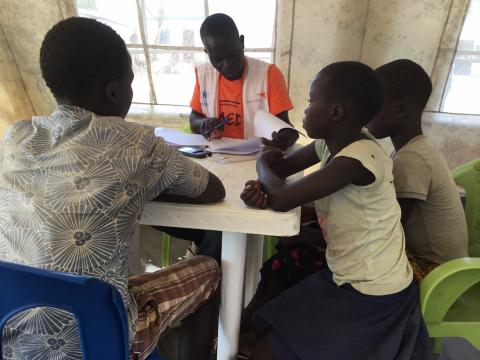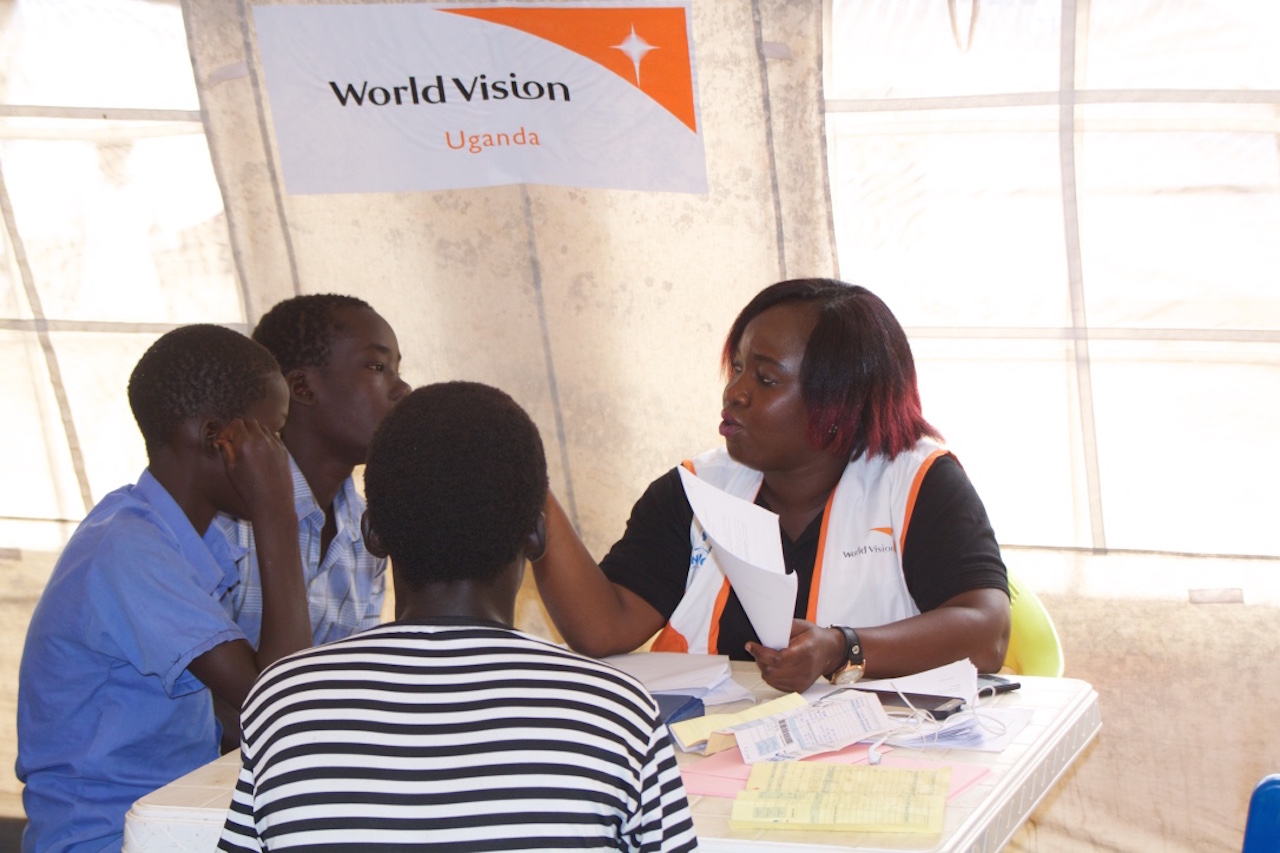Surviving the perilous walk to Uganda, a new life unfolds for Peter and his sisters

At 16, Peter* went through a horrible experience a child of his age should never have gone through. Sadly, he is not even alone. When the South Sudan refugee crisis unfolded, at least 60 percent of the thousands of people fleeing are children.
Peter witnessed his father being killed and mother abducted. ''As we fled South Sudan, we were ambushed by armed men. They wanted to know why we were fleeing to Uganda. We were made to lie on the ground. When my father tried to explain, they shot him. We all screamed and wailed. The men grabbed our mother and took off with her to the bush.”
His last memory was of men dragging his mother. “She called out and asked me to take care of my siblings’’, says Peter. After the gruesome incident, another armed group arrived and helped them bury their father at a place in Yei state. The men then took the three of them and kept them for three months in a hut. "They gave us food to eat but some days we had nothing. Then, the men asked me if I wanted to join them or to proceed with my siblings to Uganda. I told them we wanted to proceed to Uganda’’, Peter adds.
A week passed not hearing from the men. ‘’We had no idea why they were keeping us. They never explained’’, he says. One evening the three children were summoned and told they would be accompanied to the Uganda border the next morning. "We were very excited but as morning came, we began to get scared. We feared this could be a plan to kill us. My two sisters were very quiet through the night’’, Peter continues. When morning came, they set off with four armed men and spent two days walking to the Ugandan border point of Goboro.
Above: World Vision President Kevin Jenkins recently visited Imvepi refugee settlement and talked to some of the children on foster care.
"They gave us food and water to drink. On the last day they walked us up to the border and asked us to cross. They reminded me to take care of my siblings”, he adds. As they crossed the border, Peter knew they had made it. ‘’Our prayer was to get to Uganda. This is all we wanted’’, he says. Peter and his sisters went to the Kuluba Refugee Transit Center in Koboko District for registration and was transported, along with other refugees, at the Imvepi Refugee Reception Center in Arua district.
At the centre, World Vision does case management work that helps children like Peter and his sisters. They are also referred to other agencies for support such as food ration, medical care and other needs. World Vision’s work ensures that all unaccompanied minors and separated children are identified, registered, given foster parents and are assisted to re-unite with their relatives, if any. The foster parents are also refugees who are willing to look after the children. Peter says, ’’I am worried about how we are going to live inside this settlement. It will be very hard for me taking care of my sisters. I wish our mother is here. I do not know if she is still alive. I hope we get to see her some day.”
At least three days are set to find foster parents for the children. World Vision’s Child Protection Officer Evelyn Lucy Atim says, ‘’We have established a network of potential families trained on the foster care arrangement which includes child protection. Before a child is assigned to a particular family, we make sure that their best interests like language and tribe are checked and considered”, Evelyn explains.
Evelyn says that majority of the unaccompanied minors arriving in Uganda have either witnessed their parents being killed or abducted. Together with other partners, World Vision has been able to organise foster care support for around 3,000 unaccompanied and separated children. Support towards foster families includes a one-off cash assistance, basic personal needs for the children, household items for the foster family and a makeshift homestead for the entire family. World Vision also ensures that the children on foster care receive relief items, food and that their plots of land are next to those of their foster parents. The children are also monitored twice every week by World Vision case workers.
Frieda Mwebe, World Vision’s Child Protection Emergency Specialist says, “Foster care is an alternative arrangement to take care and protect unaccompanied and some separated children who can be at risk. At this point, the family-based care is recommended for refugee children in northern Uganda while durable solutions are planned for the children. We have to get them into a family unit to help them adjust to their new environment.”
Uganda is currently home to almost one million refugees from South Sudan, with 60 percent of this number being children.
Above: A World Vision staff helps facilitate the children's needs and refers them to other agencies for further support.
*Name was changed to protect the identity of the boy.

